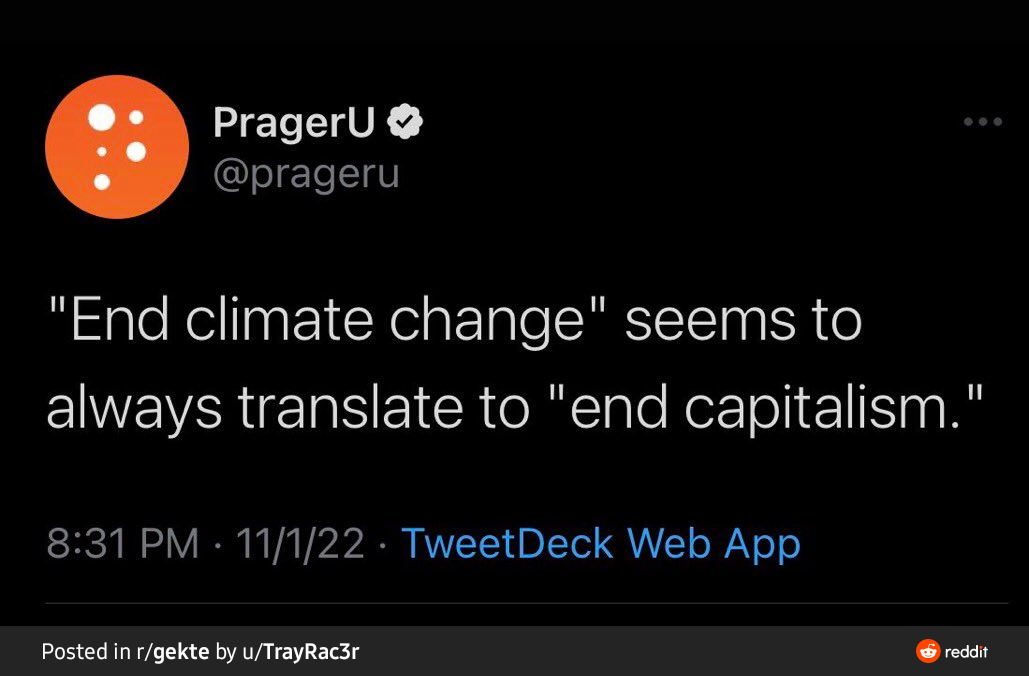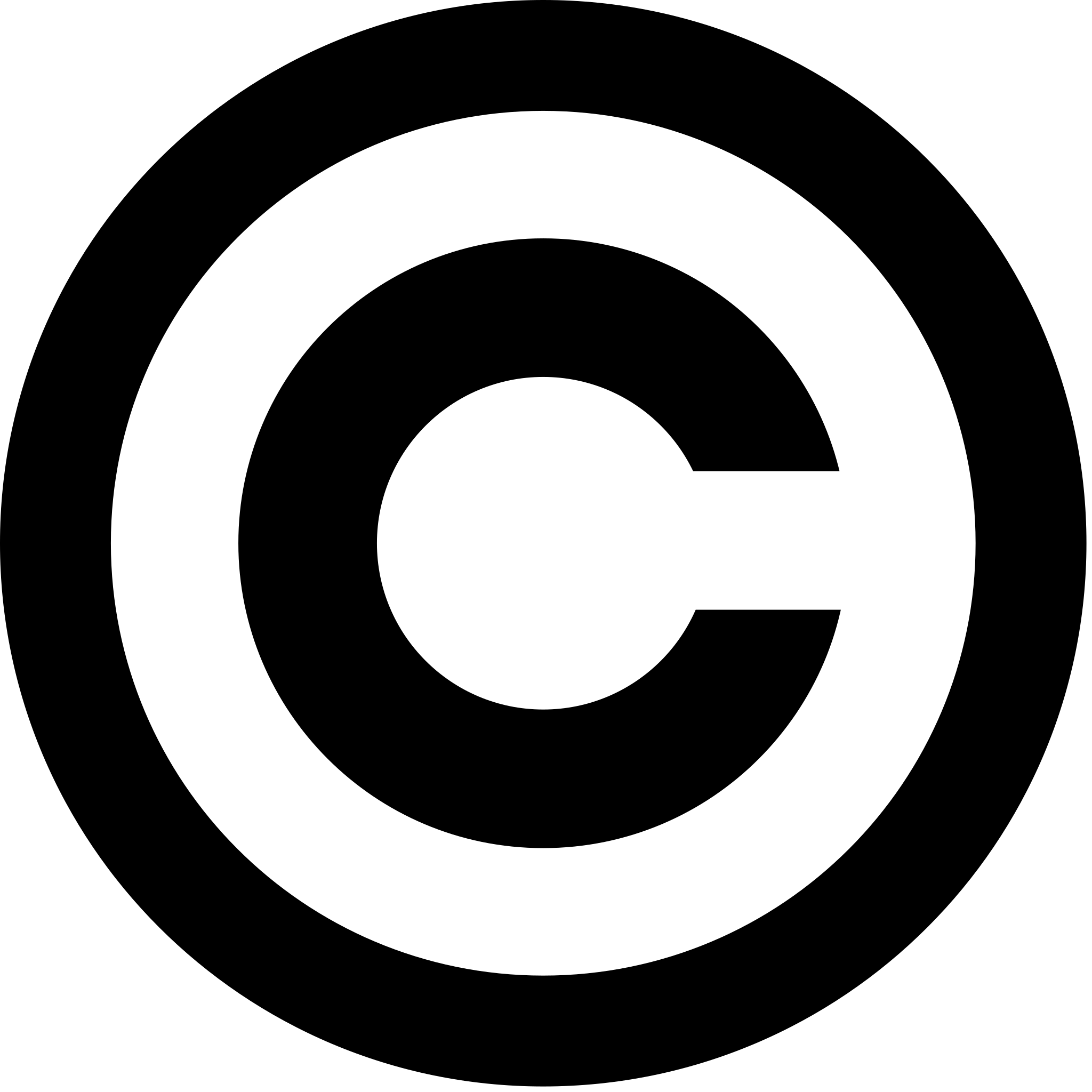They say that like it’s a bad thing.
What kills me is that this is a self-fulfilling prophecy of sorts. The longer they fight against change, the more people they will convince that capitalism itself is the problem.
Exactly. End both of them
Is there a lemmy equivalent to /r/SelfAwareWolves? Because this fits.
Make it and crosspost!
Ah, it exists: [email protected]
Hi there! Looks like you linked to a Lemmy community using a URL instead of its name, which doesn’t work well for people on different instances. Try fixing it like this: [email protected]
I’ve only recently come across PargerU on Youtube, and ever since I have only been rolling my eyes at what they say.
They’re yet another cancer on society…
The mothers days day after I had a baby, they sent me a book in the mail about a boy and a dog (I think the dogs name was Otto) celebrating mothers. It was weird but historically accurate. They said that one of the founding fathers mother was a good mother because she taught the founding fathers the bible. Im not sure what to do with the book… Donate it?
I love animals. I hate mosquitoes. If one gets in my house I’ll hunt it down and smash it gleefully. Then apologize and tell it I feel bad because it didn’t choose to be born a mosquito
Same for this book. I love books and feel they should be respected, but perhaps this one is like a mosquito and maybe should be disposed of into the recycling
Burn it.
They certainly shouldn’t complain about reciprocity. They will though.
This was the final straw for me to finally get off FB, toooooooo many (unhinged) “friends” quoting PU as facts & citing them as a source. Pure propaganda garbage.
selfawarewolves material
“Think tank” as in circlejerk.
Honest question, what economic or political system exists out there that would be better for climate change?
Or is the assumption that system doesn’t exist yet?
There are several ideas out there, but yes they generally require transitioning away from capitalism. The one I’m particularly fond of is called a “library economy”, where we no longer commoditize anything that isn’t consumable. Imagine instead of buying a wheelbarrow and shovel to do some yard work, you go to the gardening library and checkout the things you need. When you’re done in about 3 weeks, you return the items back to the library.
In general though, any planned economy would be far more efficient and less wasteful. Imagine that instead of 30 different TV’s with the exact same panel, there’s 2 or 3 types of tv with that panel. The way Walmart operates is a perfect example of a planned economy.
Library actually sounds nice. Funny you mentioned wheelbarrow, I actually need one for a project, but have no space for one, and hate the idea of buying something I’ll need once. I’ll end up renting one, but would be great to check one out.
I don’t see how a library economy would work with a lot of things. Like, if I wanted to do a house cleaning day, I go to the cleaning library and rent a vacuum. But what if I drop something on the floor…I have to check out a vacuum, just to clean it up? Then what if all the vacuums are checked out? It really seems horrible inefficient and a logistical nightmare.
Yeah it’s not really a feasible idea, imo. People are terrible and it would be a classic tragedy of the commons.
The real tragedy of the commons is that we lost the commons to the wealthy elite. We can govern the commons collectively by ourselves without the need for governments, corporations, or the influence of money. I also have a hard time imagining someone deciding that they need 10 wheelbarrows and taking them all from the library, which can acquire more. Are there people checking out every copy of Harry Potter from a book library just to deprive others from reading it?
A library economy doesn’t mean you can’t also own things. You can own a vacuum, and then borrow a steamer for the big spring cleaning. Or say you’re like me and vacuums aren’t necessary most of the time. Instead of owning one, I could go and get one once a month.
Not disagreeing with your central point, but it’s worth noting that planned economy has been tried and it failed, not sure to planning errors but fundamental systemic issues with the approach.
There have been failures, yes. However, look at any company, especially the megacorporations like Walmart. They all have planned economies. Walmart IT isn’t placing contract bids with the Walmart marketing department, they just help the marketing department when needed. The meat department isn’t shopping around for cheaper suppliers, they get meat from the logistics network Walmart controls. The only example of a free market business I know of is Sears, which was already sinking. The free market idea from the CEO was catastrophic and sunk the company in under a year. The IT department needed to turn a profit, so their prices were high. When the marketing department needed IT and Sears IT placed a bid, it was higher than contracted IT so the marketing department didn’t work internally and ended up costing the company massive amounts of money.
There are also successful planned economies in existence right now; Cuba is thriving in spite of the economic sactions by the US, and Vietnam didn’t stop being communist after the war with the Khmer Rouge. This also excludes other realities, like what constitutes the failure of a country? Is it a failure of a planned economy, or is it a failure of government? If it’s a failure of the economic system, then why aren’t failing/failed capitalist nations attributed to capitalism?
Imagine instead of buying a wheelbarrow and shovel to do some yard work, you go to the gardening library and checkout the things you need.
I get the sentiment but that sounds awful. Do I need to go borrow a mountain bike every time I want to go for a ride which I now do about 3 times a week? What about my hobby as a maker? Do I need to go borrow all the necessary tools every time I want to build something?
This would basically mean that I get almost nothing done ever because when the inspiration strikes my tools are nowhere to be found.
Only just discovered the concept now in this thread but I guess it’d work like any other library. You’d just check out the stuff you need that you choose not to own for what ever reason.
If you want to own a mountain bike because you would use it regularly then that would be fine. But if you need a drill press for a project you can go check one out.
Just guessing here as I’ve done no reading on this subject.
That’s exactly right! Library economics are incredibly simple. You own what you want to own, and borrow what you need
No not at all! Instead of thinking about this as the only way to get things, think about how you get things now. Just replace stores with libraries. You can own things that you use regularly (basically through an indefinite borrow from the transportation library), but borrow other things as needed
I can already go to a library and borrow a power tool or a shovel though. No need to end capitalism to do that.
Don’t Google what planned economies did to the Aral Sea and it’s climatic consequences
Any system that has some growth built into it will eventually cause problems, it’s just that some of them, like capitalism, are very efficient at getting us to these points faster. The best system for the climate was discarded long ago, as we moved out of the hunter-gather phase and discovered techniques in maximizing our energy into other things besides just surviving. Agriculture and all that it allowed were the first steps into taxing the earth’s balance.
Socialism.
Capitalism is inherently a wasteful of resources and also doesn’t value human life nor the planet’s life. The planet and people are just something to be exploited to enrich the top capitalists who contribute nothing.
It encourages planned obsolescence, short term profit making, and production of commodities which exist solely to turn profit, etc.
A socialist economy, if not being constantly undermined and sabotaged by the capitalist imperial core cough , would exist to meet the needs of the people, the workers. There is no capitalist class under this economy. All surplus value goes to some collective, the state usually, to be held and used in common for the betterment of the people who labored. If all countries adopted this outlook and abolished their capitalist classes and liberal democracies which exist solely to protect the capitalists, then all resources could/would go straight to necessary resource production. Things like food, housing, etc. would be met very quickly due to technology that already exists. This is absolutely not an issue. It’s only an issue due to hoarding, poor/zero distribution of resources under capitalism, and purposeful scarcity as a “disciplining” tool for labor.
Once basic needs are met, luxury commodities can also be created. This is where BUT NO IPHONE? VUVUZELA? comes in. People incorrectly attribute technological innovations to the economic system instead of realizing that 1) capitalism had absolutely nothing to do with smartphones or the internet existing and 2) these things would exist under a socialist economy as well, however the end result may look different simply due to a focus on things that last longer and aren’t meant to be chucked in the bin after 2 years. The only reason our gadgets die so quickly is so we can be sold more gadgets and this causes more surplus labor (profits) to be sucked into the capitalist class. Remove that thievish incentive and you remove the excessive waste associated with it while retaining better commodities that meet the desires of society in a “fair” way that doesn’t destroy the world for the benefit of the few.
Basically imagine a world run by those who labor and importantly a world not designed to simply suck all the profits of exploitative labor under bullshit made up reasons to the 1% and 0.1%. Some people call it utopian. To some, the idea of people cooperating, which is the “natural” state of man, instead of being at each other’s throats because some rich thieving class put them in that position, is inconceivable. And to those people, they should examine why it is they so readily accept the bullshit shoveled down to them from those with every incentive to kill them and the planet and why they dismiss so easily as “utopian” the most obvious solutions. “Oil companies are raping the earth to enrich a few people? What if we… didn’t have… oil companies…?” That logic is never allowed. And it’s worth asking why it is people don’t look to the simple answers that we can very clearly see would be better for the average person. Your “honest question” (ok dude) here is a perfect example of this fascinating phenomenon. You already knew the answer, yet something prevented you from embracing the solution and instead posting bad faith questions. Well, anyway, that’s a different topic, I suppose.
My “honest question” was not asking if a better system could be described, that much is obvious. My question was about the intent of statements like OP. I was probing at the idea that current socialist or communist examples are better than capitalism (perhaps marginally). My understanding is that doesn’t seem so.
Per my other reply, I think the answer to my question is yes, the path forward is to trash all the systems we have at the moment and shoot for something closer to what you described.
Read the phrasing of my question, I asked if any systems exist, not theorized.
If you want to avoid saying socialism, communism, or true communism (anarchism) then try library economy or gift economy. Some nice examples I’ve heard.
Except that some of the absolute worst ecological tragedies in the modern world were done in socialist systems, largely because they were inefficient, central planning made it more effective, and people couldn’t say no or mitigate it. I honestly think that people use socialism as a catch-all to bee a system where they can force through the changes they would prefer to see in the world.
Meanwhile, some of the most effective ecological mitigations of the modern world were done through legislation and regulation of a capitalist system. Example: the banning of CFCs and water management.
It’s largely our growth as a population that’s caused the issues and it requires drastic action at all levels to live within our means. We can live more sustainably and we are getting there but it does require an efficient system and educated populous. That results in better regulations on markets that can account for externalities.
Poisoning the waterhole hurts everyone regardless of system. There needs to be consequences put in place for doing so, and by the international nature of the problem it requires treaties to get all systems aligned. That takes time and effort and we are getting there.
Except that some of the absolute worst ecological tragedies in the modern world were done in socialist systems
The Dust Bowl. Exxon Valdez. Deepwater Horizon.
I think this goes back to my original question, obviously capitalism has had it’s disasters, that much is known, but at the same time you have disasters like Chernobyl, Kyshtym, Dzerzhinsk. I understand the USSR was not the ideal communist/socialist system, but it’s the most apparent we have (going back to my original question, I think?). I just feel like statements in OP are not the right rallying call if actual change is desired, as it implies we just need to shift to our current implementations of other systems. I think the only real answer, like I mentioned in other comments is to bypass current systems and investigate new options.
You’re suggesting heavy regulation of social and economic systems which is the entire point of socialism. You say socialism doesn’t work, but that is exactly what you’re describing.
And capitalism does not want to exist in a society of international regulation. Those concepts are at odds with one another.
The pure socialism people keep asking for hasn’t worked. It’s been taken over and corrupted throughout history.
Capitalism does not want socialist policies, but you can still force it to apply them. Because it’s not a god, a person, an all encompassing system, any of that. It’s a tool just like socialism should be treated.
If you like markets you might be more interested in learning about democratic market socialist countries and how they operate. The Nordics lean in that direction - after all, social democracy spawned out of orthodox marxism. The core idea in OG Nordic economics is simple: more democracy. You don’t need a min. wage, let unions bargain for their salaries, which is why McDonalds famously pays such a massive min. wage in Denmark. Fund and support democratically owned housing (housing coops, of which 20% of Norway resides in and still growing vs pop. growth despite no more gov. funding) or democratically run grocery stores (Finland has the highest density of consumer coops in the world) - housing coops usually have democratically agreed policies like not being able to treat your property like a commodity/investment by primarily renting it out (thus not contributing as much to rising housing prices), and consumer coops have been at the forefront of more environmentally and labour friendly behaviour. All the Nordics have worker board representation - workers make up a percentage of the board and help steer the company. There’s also the social wealth funds in Norway that give the government the power to guide corporations towards more ethical behaviour by owning significant amounts of shares in businesses, both domestically and internationally - although some argue Norway could learn from the Alaska SWF which pays its citizens dividends from the SWF. All of this builds towards economic democracy, or more commonly known as “socialism”, but in a way that has had great success. They’ve reeled some of those things back in recent decades, and the negative effects are clear to see - Norway stopping its funding of housing coops has meant a growing housing crisis much like the rest of Europe (with few exceptions, like Vienna (Austria) and Finland where socialised housing plays a bigger role).
I guess where I get thrown off by statements like this is thinking of socialist and communist examples of recent history. They all seem to consume as fast as their capacity allows, never seems that different from capitalism. I know a lot of examples aren’t perfect representations of that economic style, but closest examples we have. Just always seemed to me the idea of eliminating capitalism to heal climate change should be, eliminate all systems we currently have in favor of something new.
Library economy sounds interesting
You don’t need to end capitalism to help the climate.
Just properly regulate it. It’s a tool just like every other economic system, and shouldn’t be hoisted to a higher pedestal. Every system that fails fails because regulation falls off the wayside and leads into corruption. Capitalism’s only strength is it took longer to get there because all the power was spread out for awhile.
That’s a pretty shallow take on historic economics.
Capitalism had a role to serve as the transition out of feudal economics.
Now it’s time to do better.
Better as in what though?
We’ve used every economic system by itself, and the only really successful version is a combination of them with proper regulation. What else do you do?
We’ve used every economic system by itself
Because a few hundred years with constantly changing technology is an exhaustive test of every possible version of organizing society. Pack up folks, it’s all been tried and only one thing works or will ever work.
Well there was a guy with a funny beard who wrote about what happens when capitalism produces more goods and services than could ever be reasonably consumed by the populace of the world. He wrote about how there were basically 2 coutcomes. Either the the rising supply just keeps pushing prices down until the only issue comes down to a logistics and distribution problem and money functionally becomes pointless and state power doesnt have any heirarchy to enforce. Or the people with money and power enforce artificial scarcity, through tactics like letting crops die in the fields, or only release so many diamonds into the market and promiting it as a good thing, to protect their wealth and power.
So it’s better just because the guy who created it said so?
Like half of Marx’s theories are gross oversimplifications that are definitely biased towards his point
Well communism has been tried and it didn’t work. It was trounced by the capitalist world which, nevertheless, adopted some socialist ideas, especially in Europe.
So no, it’s not time to do better. Communism isn’t the next step after capitalism. It clearly isn’t remotely capable of competing with capitalism in the long term. No matter how many thousands of pages of theoretical wishful thinking people have written about it, if it doesn’t work in the real world it doesn’t work. It always ends up in authoritarian, repressive regimes that are economic backwaters. To the extent that they desire secular growth they have to open up markets like China did, and simply become authoritarian and somewhat economically free.
The biggest issue is that this is a doomer self defeating argument. If you don’t believe something is possible, then it isn’t. Even if total communism is an unreachable goal, why not try to move closer to it? Liberalism is a walking contradiction, with economic liberalism being almost incompatible with social liberalism. That hasn’t stopped it from having drastic positive and negative effects on human history from people trying to live by it.
Furthermore, the idea that communism is a dead end reinforces the toxic view that anyone attempting to strive closer towards it is a threat that must be eliminated. Anti-communist sentiment has led to and enabled some of the worst atrocities of all time. The best part is that many of the people accused of being communists merely wanted liberation.
The fact is, if communism was wiped from existence and Karl Marx erased from history, the same ideas would evolve out of Christianity, or liberalism, or any ideology that isn’t a fucking death cult. This is because Marx did not make a unique and unprecedented observation, he just put the pieces together first. Egalitarianism and sharing is as important to human success as territorialism and self interest.
Finally, Marx did believe communism would come out of industrialized societies with enough resources to go around. That is not the state that the Soviet Union or China were in when they declared themselves communist. Making absolute statements about the end state of all attempts at something is setting yourself up for failure far more than trying a new way to make something theoretically possible happen.
Capitalism works well when there is plenty of potential for growth, but when there are non-monetary reasons (such as the literal end of ecosystems favorable to human life) that require adjustments or even degrowth, it quickly devolves into feudalism - and the problem is that we do not have the means to quickly stop CO2 emissions without tightening our belts in energy consumption, which in turn requires some degree of degrowth.
regulation falls off the wayside and leads into corruption
And vice versa! Corruption leads to lack of regulation. It’s a shit circular dance that I feel like we’re doomed to repeat regardless of the economic system we pick.
Lack of regulation? I’d say it creates even more regulation to keep corruption going
Yeah, we need regulation but no direct intervention like the state is currently doing to protect monopolies.
Like, make some rules to keep competition fair but don’t go to specific companies to protect them
I miss r/PragerUrine. Par for the course for a right wing cesspool
Is there a c/toiletpaperusa?
deleted by creator
Best comedy website ever
deleted by creator
But as you said, activists often use climate change as an excuse for “overthrowing capitalism” and replacing it with a “dictatorship of the proletariat”, and I think this tweet is actually referencing this rather than thinking it to be the logical conclusion
deleted by creator
Or investing in improving things like fusion energy and superconductors
patriarchy too, pal… might as well learn it now…
Maybe capitalism needs to suck it up and pull itself up by its bootstraps instead of needing subsidized fossil fuels. /s
deleted by creator
Uh huh


















